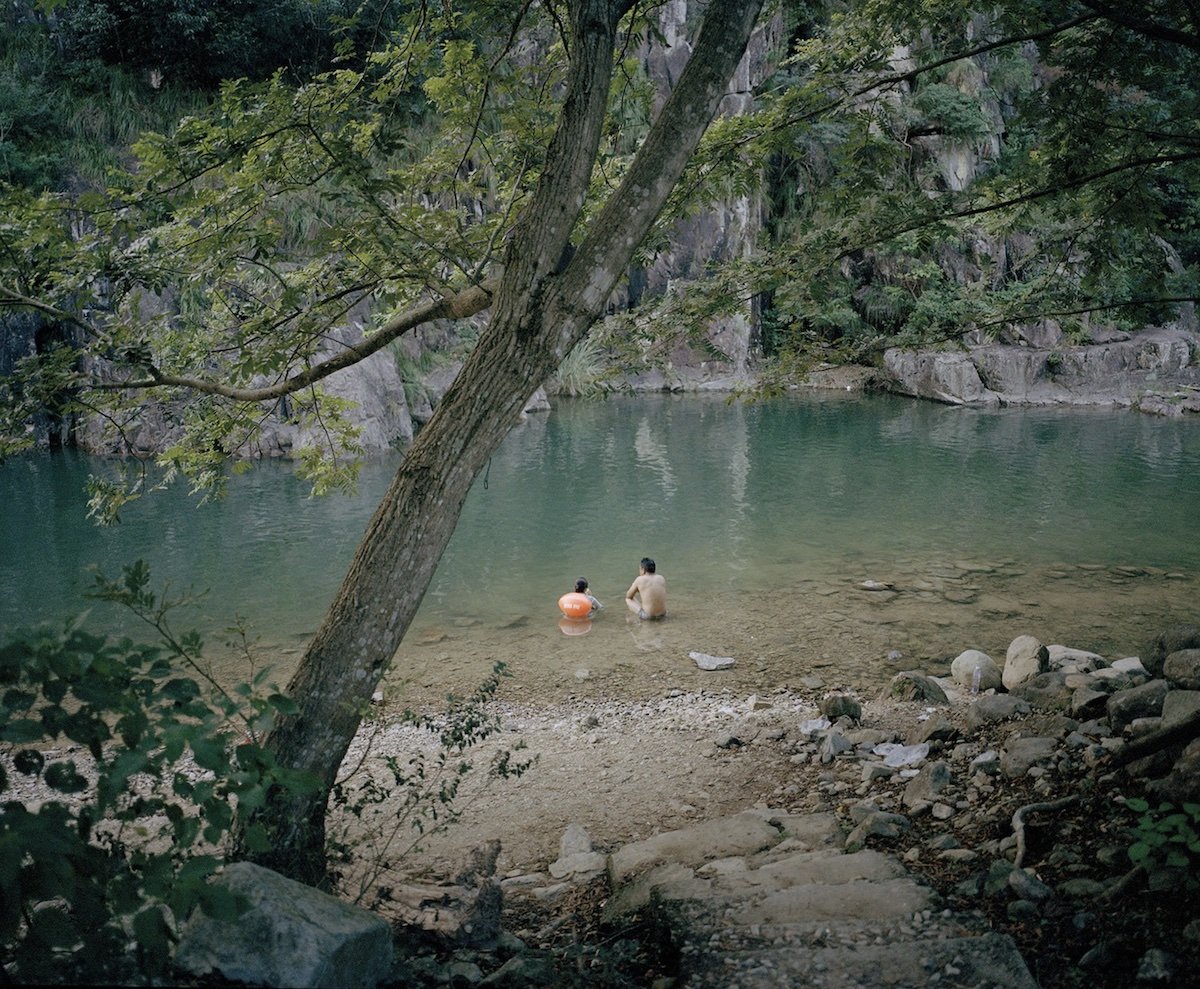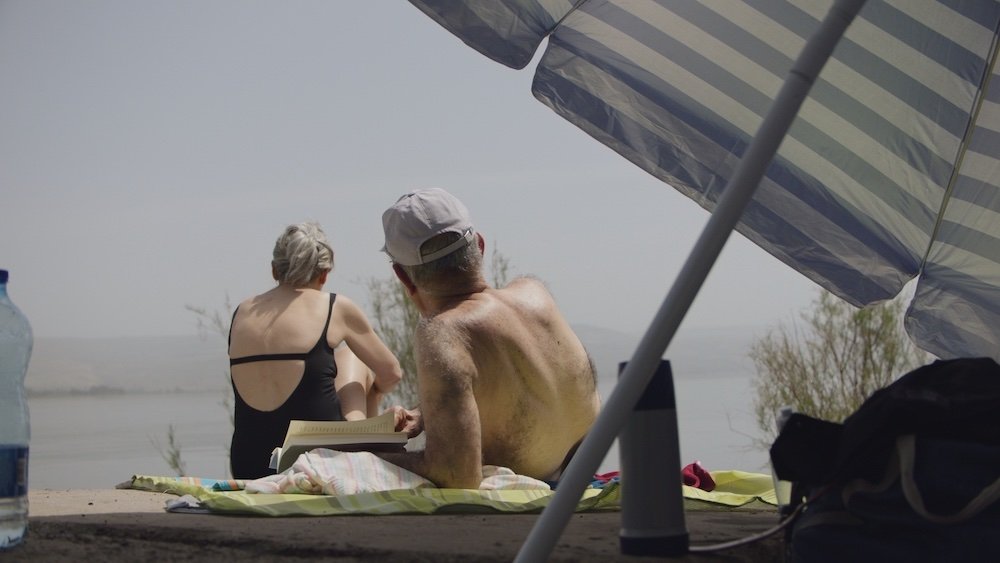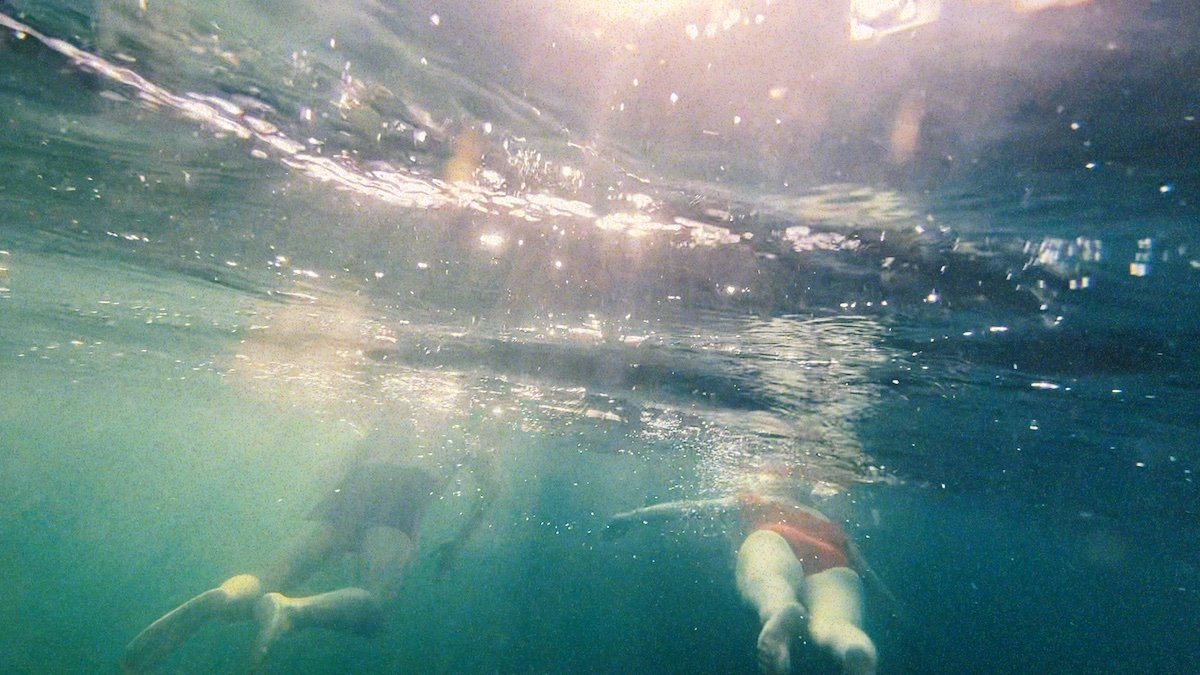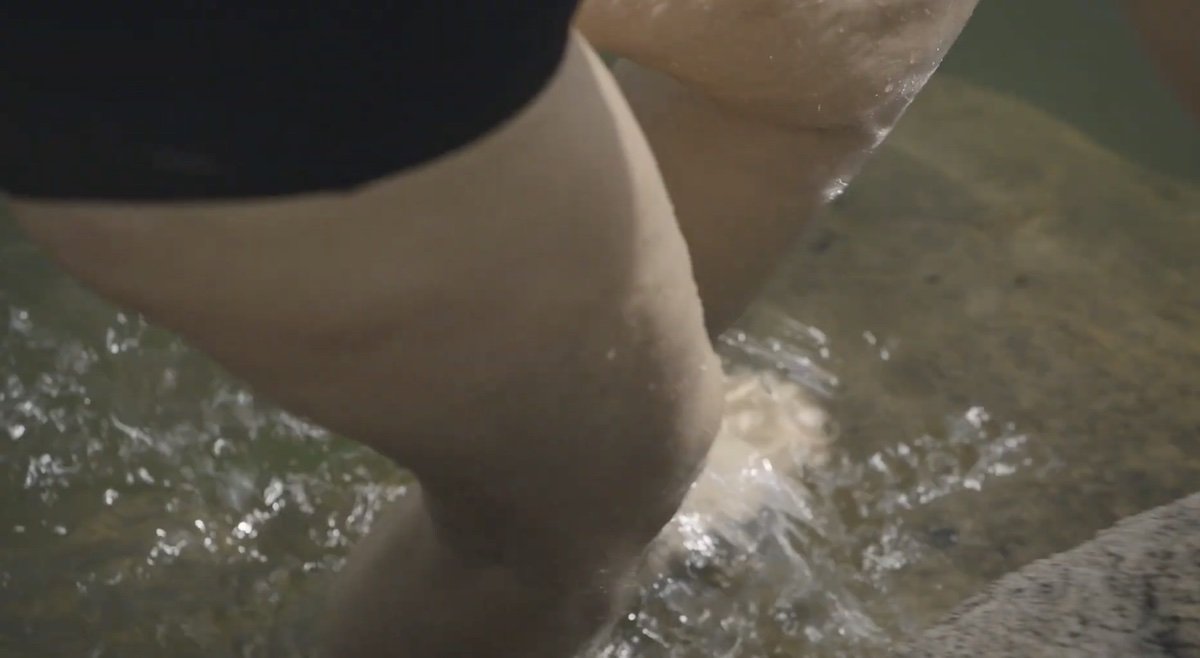IDFA 2022 Roundup
Last month, I attended a few days of IDFA which ran between November 9-20 in Amsterdam. The festival also hosted talks, performances, industry gatherings spread across the city. I stuck to cinemas close to where I was staying Eye, Pathe Tuschniski, Pathe Munt and Pathe City and watched 20 films in total (15 in cinemas and 5 on IDFA’s online screening platform available for accredited press, after returning to Dubai).
I found myself mostly drawn to films about one’s place in this world, and films about interrogating archives and written histories.
I started with a film I had seen before, a few weeks prior at Viennale. A Little Love Package (Gastón Solnicki) is set in Vienna and Malaga with a fragmented narrative reflecting on the ordinary, community, acts of generosity (or lack of) and contentment. The scenes in Vienna revolve around Angeliki (Angeliki Papoulia) looking for the perfect apartment in the city. In Malaga, Carmen (Carmen Chaplin - granddaughter of Charlie Chaplin) visits her family, featuring her real life parents Michael Chaplin, Patricia Betaudier, and her siblings and their children. I wanted to revisit its images, the conversations - “Wherever you are is the centre of the world”, and listen to Wonderful Life by Black playing over the end credits.
All That Breathes (Shaunak Sen) is a film about caring - for animals, siblings, the environment - “Is there enough water on Earth to submerge all of land?”, coexistence, and the relationship to place.
It follows Saud and Nadeem Shehzad, two brothers running Wildlife Rescue in the city of New Delhi where they treat black kites. A job with no financial gains in a city with high pollution and brewing civil unrest, in addition to family struggles, the daily hustle, and trying to balance social and family responsibility versus pursuing personal dreams and ambitions.
Foragers (Jumana Manna) is about foraging as resistance on occupied land, filmed in the Golan Heights, the Galilee and Jerusalem. Palestinians foraging for wild edibles like ’akkoub (a thorny plant from the sunflower family) and za’atar (thyme) to feed their families from recipes handed down through generations is a dangerous and criminal activity, under the guise of Israeli nature protection laws.
The cast, including Manna’s family members, are seen foraging, cooking, swimming and reenacting interrogations or trials based on existing records. The film is both reflective and humorous in presenting the politics of control and ownership, the importance of these plants and the resilience to going back to the land where they come from. “This land isn’t yours.”
I Didn’t See You There (Reid Davenport) shows us a world from the perspective of a wheelchair, specifically Davenport’s, and how the world mostly ignores the disabled who try to participate in daily activities we take for granted. With a camera attached to Davenport’s wheelchair or his hands, he reflects on the legacy of P.T. Barnum’s Freak Show triggered by the presence of a circus tent outside his apartment, and captures the mental and emotional toll of having to be seen and acknowledged without the pity or unsolicited assistance. It is confrontational and unapologetic.
Will You Look at Me (Shuli Huang) is a 20 minute essay film shot on Super8 of fragmented scenes of the filmmakers city, parents and objects, paired with recorded conversations with his mother in his hometown of Wenzhou, China. Huang’s mother begs her son to lead a “normal life” because she can’t accept he is gay. Huang (born in 1997) has made a film that’s a gesture of wanting to be seen, accepted and loved for who he is.
In Colette and Justin (Alain Kassanda), the director interviews his grandfather Justin and grandmother Colette to learn about his family’s history and Democratic Republic of the Congo where he was born before his family migrated to France. A personal family history turns into a national history about colonialism, Congo’s independence and the dangerous political instability that followed. It reveals which side of history Kassanda’s grandfather was on, the role of his grandmother and the responsibilities and burden she and many women at the time experienced - a narrative normally excluded from the history books. Alain Kassanda’s contemplative narration counterbalances the harsh images we see and truths we hear. Towards the end of the film Justin says, “The one who sees must tell the story”.
The Super 8 Years (Annie Ernaux, David Ernaux-Briot) is made of home video footage shot by Philippe Ernaux (Annie Ernaux’s husband and the time and father of David Ernaux-Briot) between 1972 and 1981. It consists of images of home, family activities and travels abroad to Chile, Morocco, Albania, Moscow, Spain, Portugal and UK.
A moving photo album that could be perceived as family nostalgia, but home videos also become records of places and people that no longer exist. With Annie Ernaux’s voice over reading text written by her it also becomes a film about memory and looking back at oneself in the past. "It was both joyful and melancholic. It was me. It was us".
Private Footage (Janaína Nagata) is a desktop film showing footage filmed in South Africa found on old 16mm reel Nagata bought online alongside her online research focusig on certain fragments of the film, deconstructing and contextualising what we are seeing via search results and Google translations.
What at first appears to be an innocent family vacation home movie slowly reveals itself to be a documentation of racial oppression during the Apartheid years.
A History of the World According to Getty Images (Richard Misek) questions the term ‘public domain’ and how historical photos and footage are controlled for profit and treated like private property by commercial image libraries like Getty Images.
Werner Herzog - Radical Dreamer (Thomas von Steinaecker) is about Herzog’s career as a filmmaker, actor and writer, and his search for the extraordinary. It is reflective and funny, with many Herzog wisdoms. A man whose wonder, curiosity and tenacity has made him one of the important filmmakers of our time.
We get a glimpse behind the scenes of Herzog’s film Theatre of Thought (2022), where we see a scientist asking Herzog which camera should he look at. Herzog firmly replies “look at my eyes not the camera”. A simple gesture for a filmmaker to connect with his interviewees and eventually the viewers that so many filmmakers get wrong.
In another scene Herzog asks why a poet was never sent to space. A simple yet profound question about the divide between the arts and science.
From an old footage during the arduous and challenging conditions of filming Fitzcarraldo (1982) Herzon was asked if he ever considered giving up on the film. He replied by saying giving up would mean he’s not a dreamer.
Watching Fire of Love (Sara Dosa) about Katia and Maurice Krafft, the volcanologist couple who travelled around the world to document volcanoes is mostly made of films shot by Maurice Krafft on 16mm. They appear to be in perfect condition, so crisp and detailed and made me want to see all the films he made.
De Humani Corporis Fabrica (Lucien Castaing-Taylor, Véréna Paravel) upped the ante for me when it comes to body horror. A film of remarkable and discomforting footage of inside the human body. But we also hear doctors and nurses discussing around operating tables or during their breaks about the stress and pressures of the job and decreased financial gains.
Lastly, similarities in scenes by filmmakers observing their parents whilst swimming in Will You Look at Me (Shuli Huang) and Foragers (Jumana Manna).
I’d also like to direct you to two podcast discussions about IDFA that I enjoyed listening to.
One with Eric Hynes, Curator of Film at the Museum of the Moving Image and another with Julian Ross, film curator and critic living in Amsterdam.
List of films I watched in Amsterdam:
A Little Love Package (Gastón Solnicki)
All That Breathes (Shaunak Sen)
De Humani Corporis Fabrica (Lucien Castaing-Taylor, Véréna Paravel)
Solmatalua (Rodrigo Ribeiro-Andrade)
Foragers (Jumana Manna)
Fire of Love (Sara Dosa)
Will You Look at Me (Shuli Huang)
A Sound of My Own (Rebecca Zehr)
Colette and Justin (Alain Kassanda)
Is There a Pine on the Mountain (Chongyan Liu)
The Super 8 Years (Annie Ernaux, David Ernaux-Briot)
Europe (Philip Scheffner)
I Didn’t See You There (Reid Davenport)
Non-Aligned: Scenes from the Labudović Reels (Mila Turajlić)
Ciné-Guerrillas: Scenes from the Labudović Reels (Mila Turajlić)
List of films I watched online:
A History of the World According to Getty Images (Richard Misek)
Maria Schneider, 1983 (Elisabeth Subrin)
Brainwashed: Sex-Camera-Power (Nina Menkes)
Private Footage (Janaína Nagata)
Werner Herzog: Radical Dreamer (Thomas von Steinaecker)



















